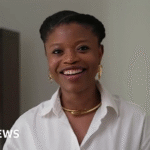(RNS) — While Americans are recovering from their Thanksgiving dinners, Pope Leo will be flying to Turkey and then Lebanon. His first international trip, these five days abroad will show whether Leo is ready for primetime on a global stage.
The trip has two major themes: ecumenism and peace.
The trip to Turkey was planned by Pope Francis to celebrate the 1,700th anniversary of the Council of Nicaea, most famous for approving the Nicene Creed that attempted to bring unity to Christians who were fighting over Christology and other theological issues.
The creed unites the Catholic Church with Orthodox churches and many Protestant churches.
Ecumenism has come a long way since I was a child, when Catholics and Protestants avoided each other’s churches (even for weddings and funerals) and treated each other as heretics. Earlier, it was even worse, with Protestants and Catholics killing each other over their differences in France (1562-1598) and in the Eighty Years’ War (1566-1648) and the Thirty Years’ War (1618-1648).
Blood was also shed between Catholics and Orthodox Christians, including the sacking of Constantinople by the Crusaders in 1204. The 1054 mutual excommunication between the pope and the patriarch of Constantinople was not lifted until 1965 by Pope Paul VI and Patriarch Athenagoras I.
Except in Ireland, the 20th century was a time of peace among Christians, but it was not until the Second Vatican Council (1962-1965) that the Catholic Church fully committed itself to ecumenism. Heretics became “separated brothers and sisters.” Christians prayed together, exchanged pulpits, held theological dialogues and worked together for the common good.
Progress was made on many old issues, like justification by faith or works. Catholics are no longer selling indulgences. Although Catholics and Protestants still do not share the Eucharist, the Mass is now in the vernacular, the cup is shared with the people and the clergy encourage the faithful to read the scriptures. Luther would have been pleased.
But as quickly as issues were resolved, new ones came up, especially relating to sexual morality and the ordination of women. I joke with my Protestant friends that, considering the changes that have occurred in Catholicism and Protestantism, today Luther would be a Catholic.
The Vatican sees the anniversary of the Council of Nicaea as an opportunity to celebrate ecumenical progress and to stress that what unites Christians is greater than what divides them. Dialogue and cooperation must continue.
Leo had limited involvement in ecumenism as a priest or bishop. Only 14 percent of Peru is Protestant. But his work and travel as prior general of the Order of Saint Augustine educated him on the wide varieties of Christianity, and the Vatican has an office of experts whose sole function is ecumenical dialogue and who have doubtless prepped Leo for this trip.
But no trip to Turkey can ignore the war that is happening just north of the country on the other side of the Black Sea.
Pope Francis was accused of tilting toward Russia because of his comment that the U.S. provoked Russia with its desire to bring Ukraine into NATO. He also encouraged Ukraine to show the “white flag,” which was interpreted as surrender when he meant a ceasefire for negotiations.
He also hoped the Vatican could provide a neutral spot for negotiations between Ukraine and Russia. The Vatican has been successful in negotiating prisoner exchanges and the return of Ukrainian children taken into Russia during the war.
Like Francis, Leo had no diplomatic experience before becoming pope, but he will be well briefed before he gets on the plane to Turkey. He will avoid making spontaneous comments on the war and will stick close to the positions articulated by the Vatican Secretariat of State, especially by calling for a ceasefire and an end to the bombing and killing.
U.S. foreign policy can change radically with the election of a new president, but Vatican foreign policy stays pretty much the same no matter who is pope.
The trip to Lebanon will be a boost for Christians in the Middle East, where they are suffering, especially in Lebanon, Syria, Gaza and the West Bank. Christians have left the Middle East in droves. The region needs peace and stability.
Lebanon is still reeling from the 2020 explosion of 2,750 tons of ammonium nitrate in Beirut that killed 218 people, injured 7,000 more and caused $15 billion in damage. The pope has promised to visit the site of the explosion.
Meanwhile, Israel has targeted Hezbollah leaders in Lebanon with little concern for collateral damage. According to The Associated Press, “Israeli airstrikes over southern Lebanon have intensified in recent weeks.” The most recent attack in Beirut’s southern suburbs killed five people and wounded 25 others. This is just a few miles from where the pope will be visiting.
Everyone will be watching to see what the pope will say about Israel’s actions in Lebanon, Gaza and the West Bank. This is a minefield for even the most experienced diplomat, which Leo is not. Again, he will be well prepared by Vatican experts, and I predict he will stick to the policies articulated by the Vatican Secretariat of State. He will support a ceasefire, negotiations and the two-state solution.
This first international trip will be a very public test of Leo’s papacy. I don’t expect a home run on his first time at bat, but neither will he strike out. A base hit will be a win.



